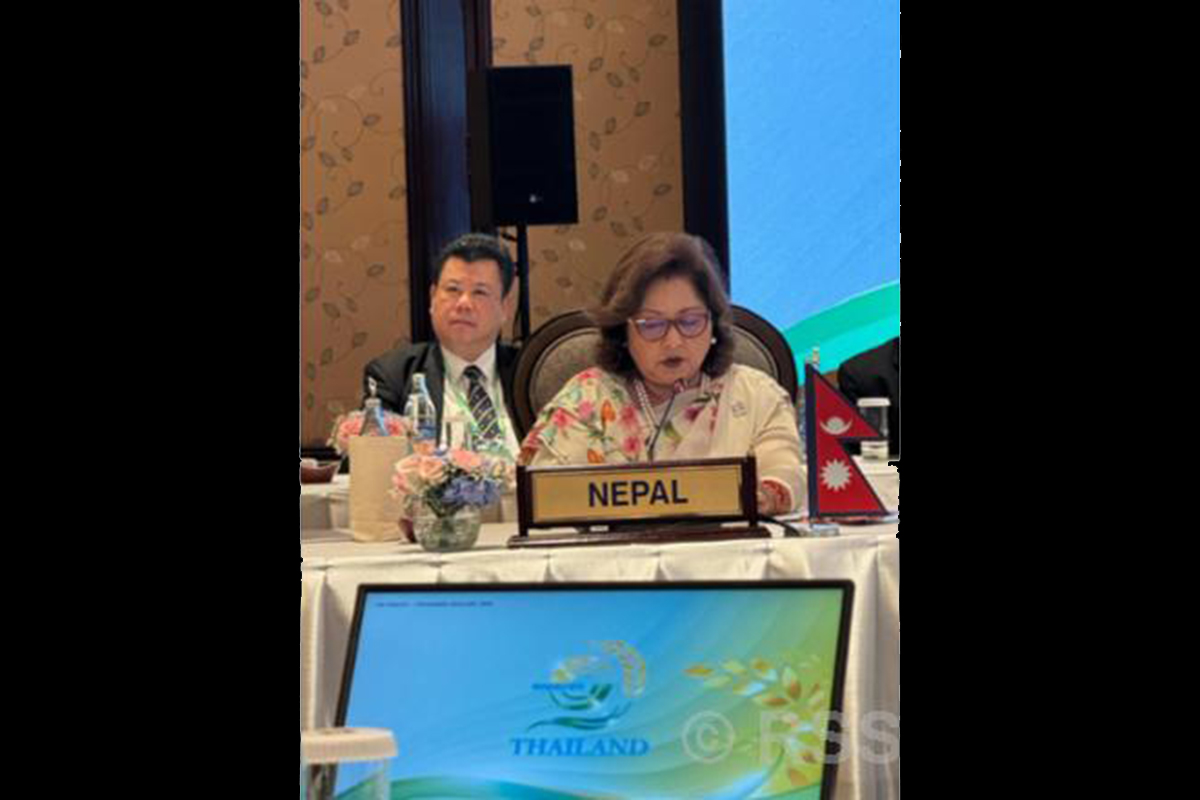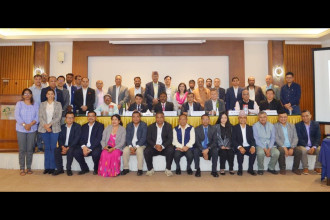
KATHMANDU: Minister for Foreign Affairs, Dr Arzu Rana Deuba, has underscored the importance of the Bay of Bengal Initiative for Multi-Sectoral Technical and Economic Cooperation (BIMSTEC) in fostering regional unity and collective cooperation.
Speaking at the 20th BIMSTEC Ministerial Meeting held today during the sixth BIMSTEC Summit in Bangkok, Dr Deuba highlighted BIMSTEC’s role in representing the shared aspirations of the people in the Bay of Bengal region.
“BIMSTEC symbolises a dazzling rainbow representing two dynamic regions of South Asia and Southeast Asia—each of its seven colours illuminating rich civilisations, cultures, histories, and ecological diversity. It should strive to unlock the economic potential of this region’s citizens,” she remarked.
Minister Rana Deuba reaffirmed Nepal’s commitment to regionalism and multilateralism through a peaceful, equitable, and inclusive approach under the leadership of the United Nations. She noted Nepal's active participation in global and regional forums to advance peace, security, and sustainable development, adding that Nepal takes pride in being the largest peacekeeping troop contributor to the United Nations.
She reiterated Nepal’s dedication to BIMSTEC’s charter, principles, and objectives since becoming a member in 2004. Addressing challenges such as climate change, natural disasters, environmental degradation, and pollution, she urged immediate efforts to enhance infrastructure, implement disaster early warning systems, and involve local communities in environmental conservation.
Welcoming India’s proposal to establish a BIMSTEC Centre of Excellence in Disaster Management, Dr Deuba expressed optimism about its potential to strengthen regional disaster management and utilise artificial intelligence to tackle these challenges effectively.
Minister Rana emphasised BIMSTEC’s pivotal role in promoting regional peace, unity, and environmental sustainability, calling for its transformation into a robust partnership platform and regional organisation aligned with global trends. She proposed initiatives such as expediting the establishment of the BIMSTEC Free Trade Area, implementing the EPG Report, advancing projects from the BIMSTEC Master Plan for Transport Connectivity, expanding the BIMSTEC Grid Interconnection, and operationalising regional centres and entities.
She also encouraged member states to collaborate through strategies for resource utilisation, workforce mobilisation, policy alignment, trade and transit facilitation, energy cooperation, technology transfer, and regional infrastructure development. She highlighted the need for integrated Digital Public Infrastructure (DPI) to support e-governance services.
Foreign Minister Rana stressed collaboration among educational institutions, awareness initiatives on maternal, child, and mental health issues, and capacity building to address diseases linked to climate-related complications. Highlighting gender equality and women’s empowerment, she urged member states to share strategies for incorporating women in governance, development, and conflict resolution, addressing historical injustices, and realising a better future.
She called for partnerships with development agencies and regional and international organisations to promote culture, tourism, poverty alleviation, and climate action through strengthened people-to-people connections.
The meeting was attended by foreign ministers of BIMSTEC member states.
By RSS




-1745481452.jpeg)

